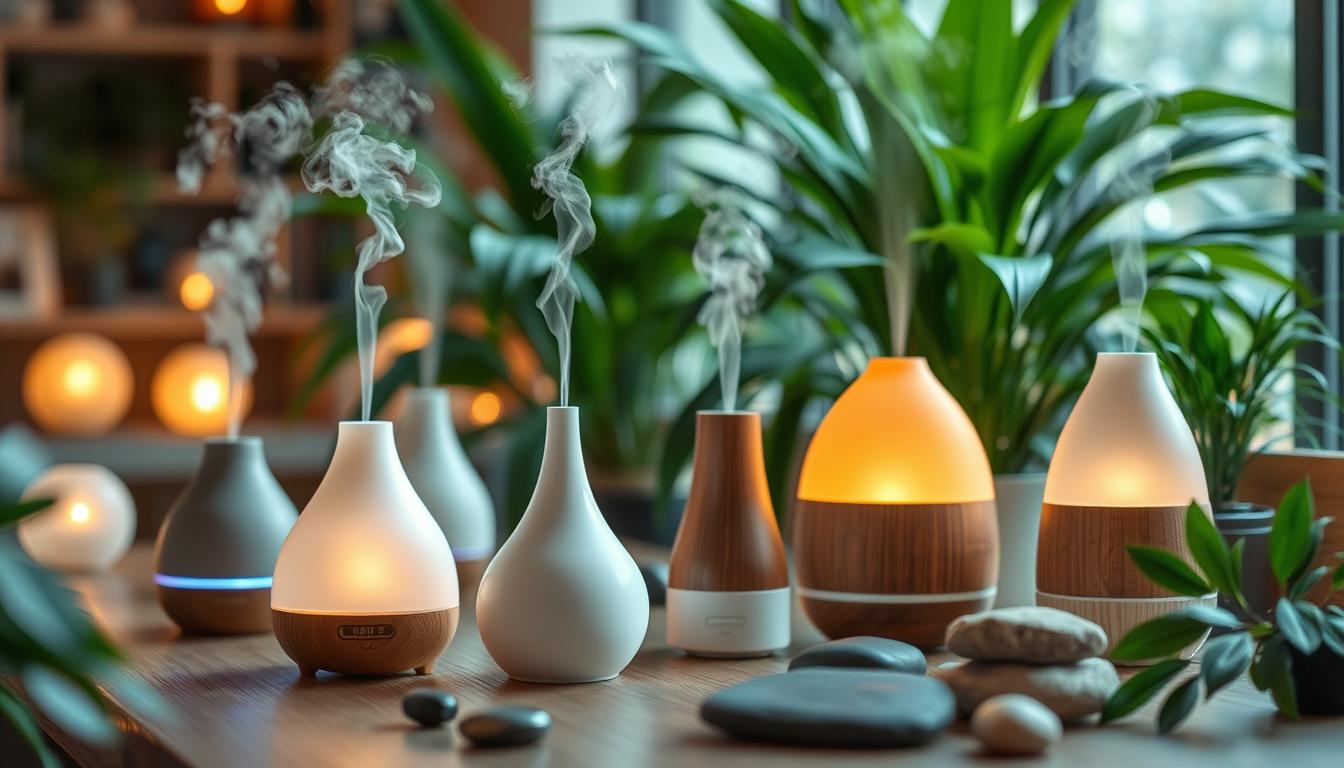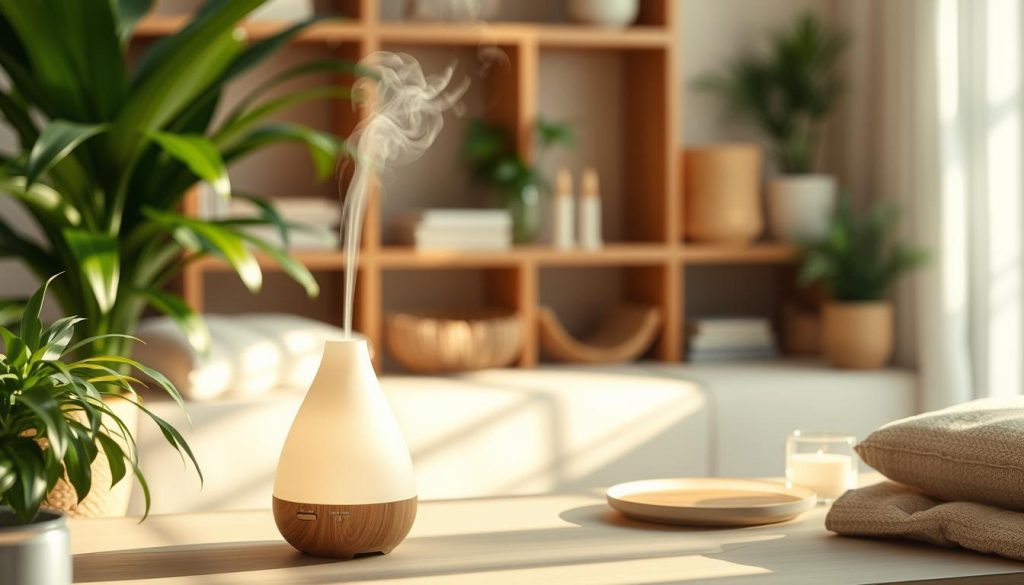
Can Aromatherapy Help with Depression?
“The greatest weapon against stress is our ability to choose one thought over another.” – William James, American philosopher and psychologist
Depression is a big problem worldwide, affecting 350 million people. It can make you feel guilty, sad, and change how you eat and sleep. But, there’s a natural way to help manage it. Aromatherapy uses essential oils from plants to calm the mind and body.
Make your home feel like a spa with Auryst essential oil diffusers. They come in fun shapes and add moisture to the air. They also fill your space with relaxing scents. These diffusers help you relax, get energised, or reduce stress easily.
Key Takeaways
- Aromatherapy, using plant-derived concentrated essences, is a popular complementary therapy for depression.
- Essential oils can be administered through inhalation, massage, or topical application.
- Certain essential oils, such as lavender, chamomile, and rosemary, have shown promise in research for alleviating symptoms of depression.
- Auryst essential oil diffusers offer unique shapes that boost room humidity and create a spa-like atmosphere at home.
- Consulting a healthcare professional is advised before using essential oils, especially for those with respiratory problems, pregnant individuals, and children.
Understanding the Science Behind Aromatherapy and Depression
Essential oils are compounds found in plants. They are used in aromatherapy to help our bodies and minds. These oils can help with depression symptoms, thanks to their interaction with our brain.
Let’s explore how essential oils work with our brain. We’ll look at the role of neurotransmitters in this process.
How Essential Oils Affect the Brain
When we smell essential oils, they reach our brain. They interact with the olfactory system, which handles smells. This system sends signals to the limbic system.
The limbic system controls our emotions, memory, and mood. It’s key to how we feel and behave.
The Role of Neurotransmitters in Aromatherapy
Essential oils stimulate our olfactory receptors. This sends signals to the limbic system and hypothalamus. These areas release neurotransmitters like serotonin.
Serotonin helps control our mood. It’s linked to depression. Oils like bergamot may boost serotonin levels, helping to reduce anxiety.
Research Evidence on Aromatherapy for Depression
Studies have shown aromatherapy’s benefits for depression. Lavender oil, for example, can lower anxiety and stress. It also improves our mood and helps us relax.
Ginger oil may protect our brain from stress and reduce anxiety. Bergamot oil has been shown to reduce anxiety in clinical settings. Oils like ylang-ylang and rose also have calming effects.
But, we need more research to fully understand aromatherapy’s benefits. While current studies are promising, more trials are needed. This will help us learn how essential oils can support mental health.
“Aromatherapy has the potential to be a complementary therapy for depression, but more research is needed to fully understand its mechanisms and long-term effectiveness.”
Essential Oil Diffusers and Their Therapeutic Applications
Make your space more inviting with Auryst’s essential oil diffusers. They are stylish and create a spa-like feel at home. These devices use ultrasonic vibrations or nebulisation to spread the scent of essential oils in the air.
Ultrasonic diffusers are quiet and popular. They mix water and ultrasonic vibrations to create a fine mist. This mist carries the essential oils into the air. On the other hand, nebulising diffusers release essential oils in a more concentrated form. They atomise the oils without using heat or water.
It’s key to use essential oil diffusers safely. Always clean them regularly and choose pure essential oils. Try different oil blends for stress relief, mood boost, or better sleep. Auryst’s diffusers turn any space into a haven of aromatherapy, blending nature’s power with home comfort.


